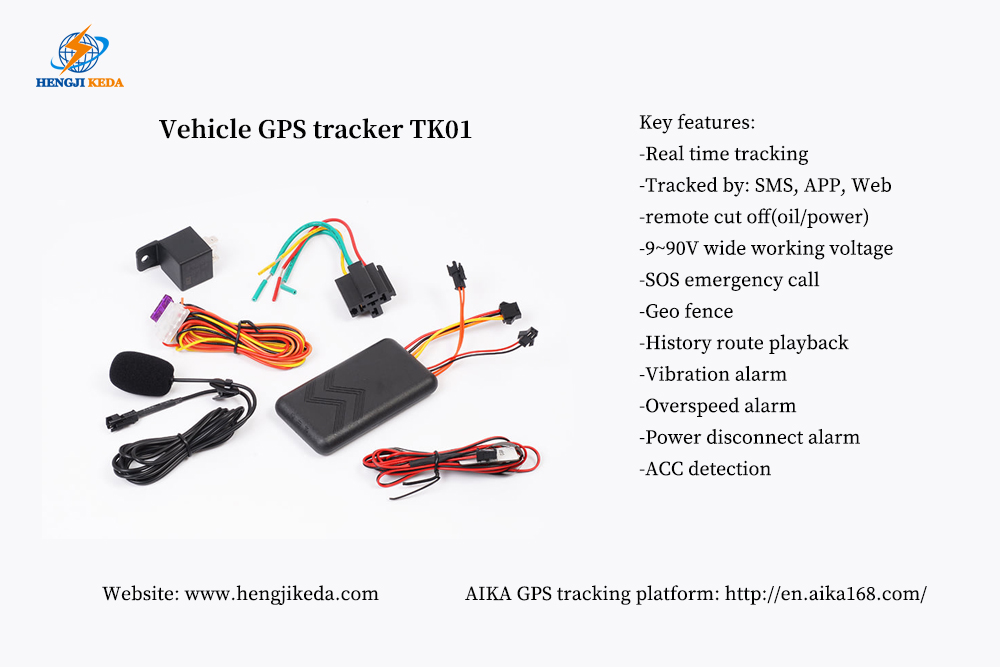

Have you considered equipping your fleet with a GPS fleet management system?GPS technology used to be an advanced feature in fleet management software.Today, however, it is an integral part of the fleet management system.A recent survey found that 76% of fleets improved productivity just by using a GPS fleet tracker in each vehicle.
What is Fleet Tracking Technology?
GPS operates by sending transmissions between the satellite and the receiver, which determines the location of the receiver unit based on the signal distance.Global Positioning System (GPS) was created and maintained by the U.S. government and can be used by anyone equipped with a GPS receiver.GPS Fleet Tracking uses this simple, reliable technology to fix (determine) the position of vehicles.

Reasons to Always Use a GPS Tracker in Fleet Vehicles
Fleet GPS tracker optimizes fleet activities, increases safety areas, and controls fuel costs and other overhead costs.With all of the above conditions in place, transportation companies can improve the management, organization and coordination of their vehicles through a centralized platform.
So, keep reading to learn the reasons why you should use a GPS tracker in each of your fleet vehicles.
Live Location & Traffic Data
Combining GPS trackers with a good fleet management platform gives your drivers and dispatchers access to real-time traffic data.They can plan, cancel and change routes to prevent delays and outages.
You can also see the exact location of the truck and determine where the service overlap is occurring.Reorganize your workload a little, and productivity is yours!
Real-time location data can also come in handy in the event of an accident or maintenance issue.
Fuel Efficiency and Maintenance Cost
More efficient routing does not reduce fuel consumption by cutting distances alone.By avoiding heavy traffic, this reduces engine idling and fuel waste.
The ability to modify routes based on real-time information, traffic patterns and weather can reduce maintenance costs by reducing exposure to conditions that can cause excessive wear and tear.This can extend the service life of the vehicle and the time between repairs, and reduce the chance of unexpected failures.
Save Time
“Time is money”-the transportation industry has realized how true this sentence is. Sometimes your convoy will be stuck on the road for several minutes. With a proper fleet management system, your fleet manager can guide drivers to avoid busy streets in real time.
Improved Efficiency and Profit
Tracking your truck will help ensure that your drivers are on the road and your trailers are full.
Knowing where your trucks are can help you effectively match trucks with cargo on a location basis.For example, by using a GPS tracker, you can quickly see which drivers are closest to the customer’s stop where they need to pick up their car.Similarly, you can schedule closer pickup and pickup to reduce downtime.
In addition, GPS provides real-time data about the vehicle’s position, speed and behavior.This data can help you ensure that your driver completes the pickup and delivery on time.Delivering on time of delivery is sure to satisfy your customers.
Using GPS trackers will ultimately improve your truck’s efficiency and increase your profits.
Asset Monitoring With Fleet Tracking
Part of managing a business fleet is maintaining control of important assets: vehicles and other equipment and the loads transported.For asset management, fleet tracking provides a constantly updated location for each item at any time of day, including off-duty status.Because fleet tracking can also show when stationary objects are moving, fleet managers can detect theft immediately and take action to avoid losses.
This same functionality means that the fleet manager can be aware of the use of fleet vehicles or equipment by employees or contractors, as well as unauthorized personnel, after hours or without authorization.
The fact that many insurance providers offer lower prices to carriers who install the technology in their vehicles demonstrates the value of fleet tracking in protecting these assets.
Keep Your Customers Happy
A loyal and happy customer base is paramount to running a successful transportation business. With the help of GPS tracking, your fleet will be able to respond to service calls quickly and reach your customers on time.
Lower Insurance & Liability Rates
Did you know that many insurance companies give discounts to companies that put GPS trackers on their trucks?Some insurance companies will even offer consistently lower rates as an ongoing reward for safe driving.Given how high the cost of insurance can be, these discounts can really increase costs for businesses.
In addition, using a GPS tracker can greatly reduce your liability in an accident.You can use telematics to “reconstruct” an accident and prove that it wasn’t your driver’s fault (if he really wasn’t).This will save you time, stress and money.
Finally, you can reduce your workers’ compensation liability and accident costs by monitoring your fleet and keeping up to date with vehicle repairs.
Manage Your Field Staff and Drivers Effectively
GPS fleet management systems will help the fleet managers in managing the drivers effectively. They can pull up the data obtained from the GPS tracking system, analyze it and take corrective actions whenever necessary.

Learn more about GPS tracking solution for fleet management please visit at: GPS tracker manufacturer


